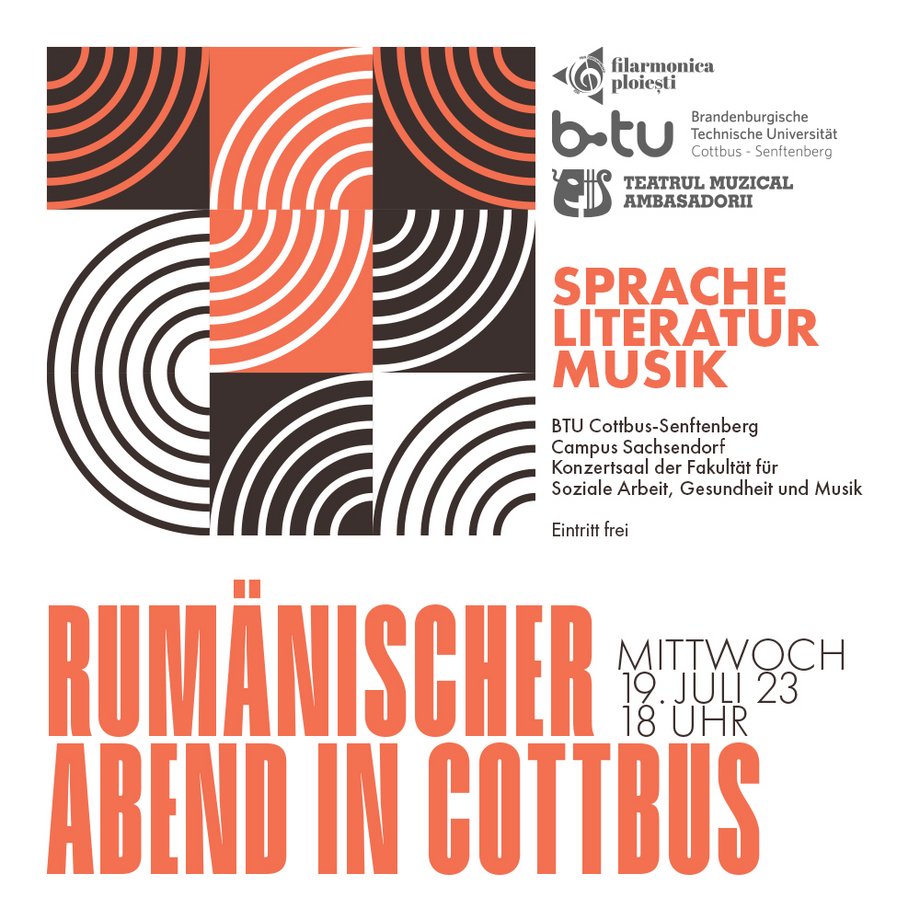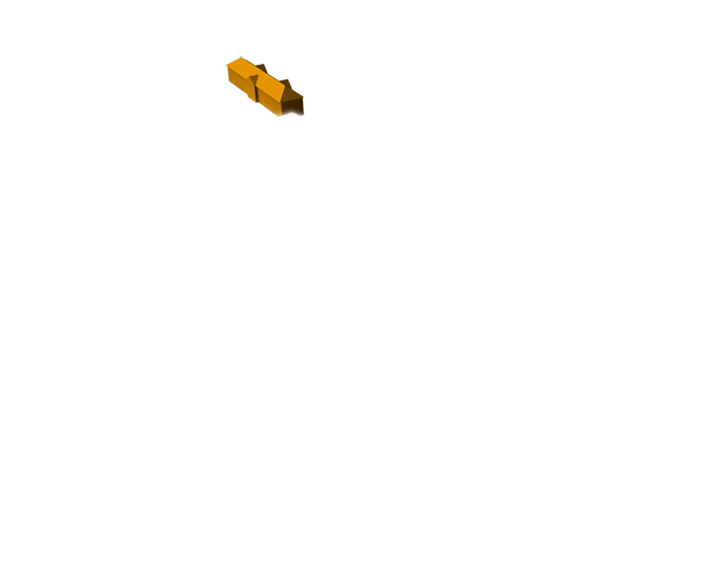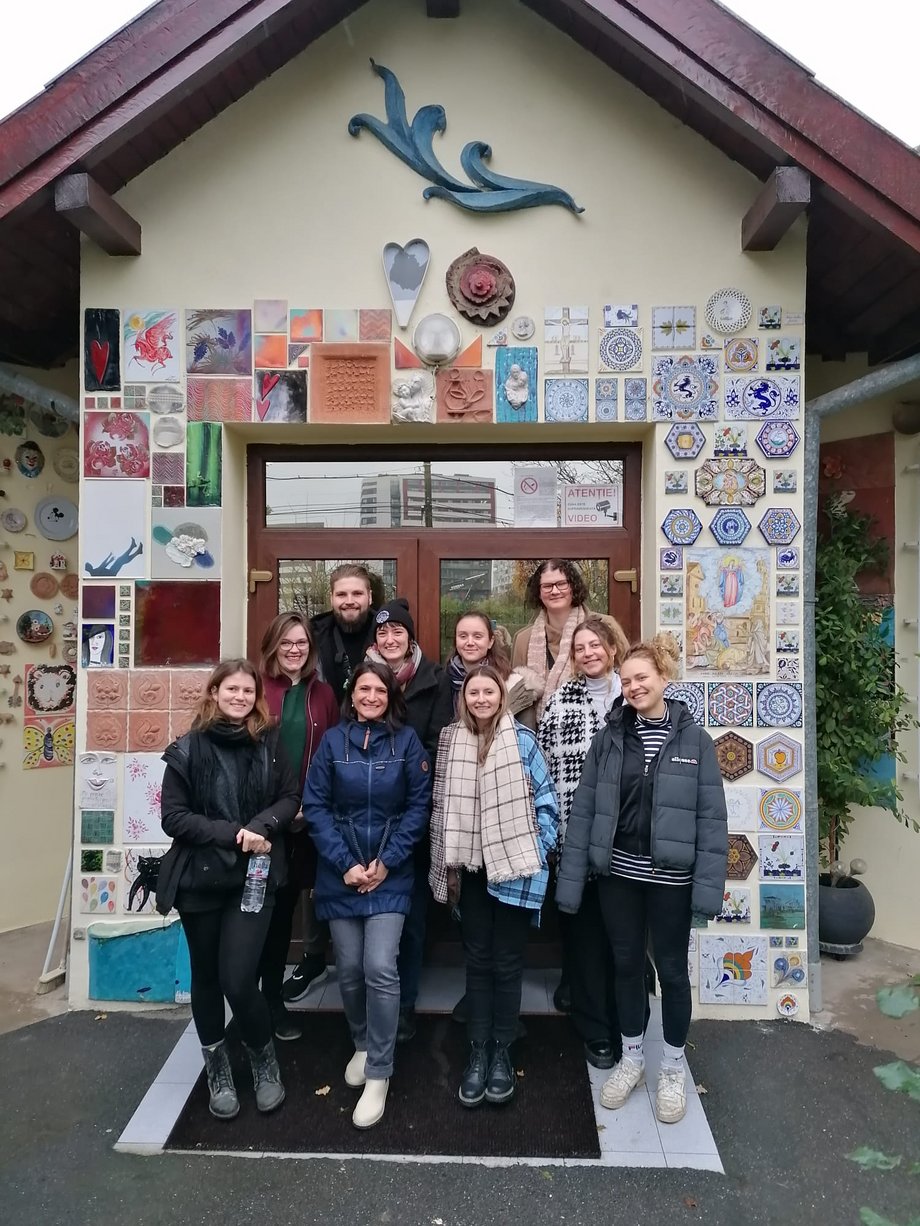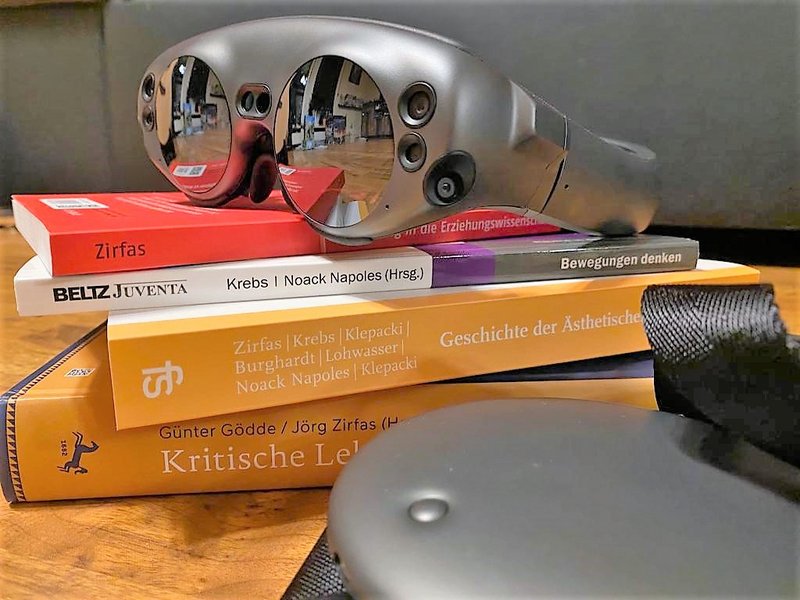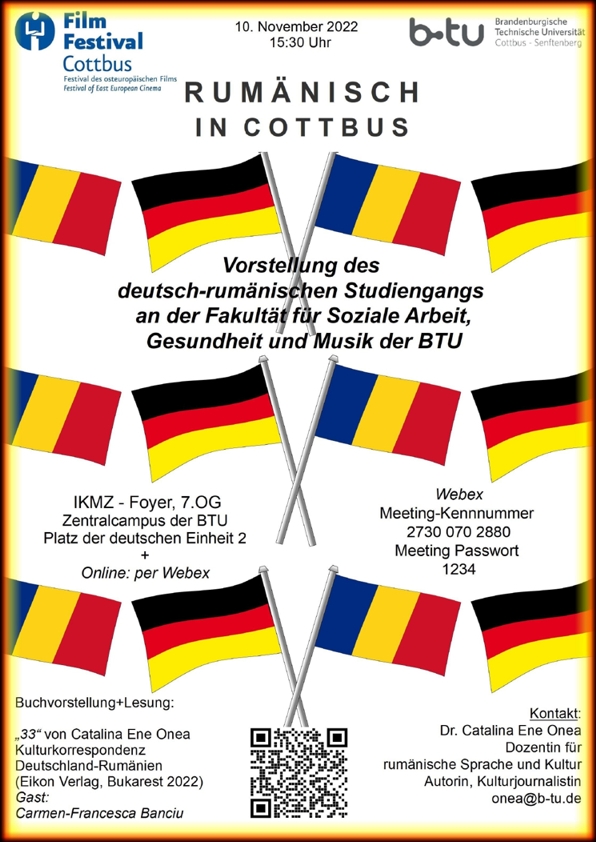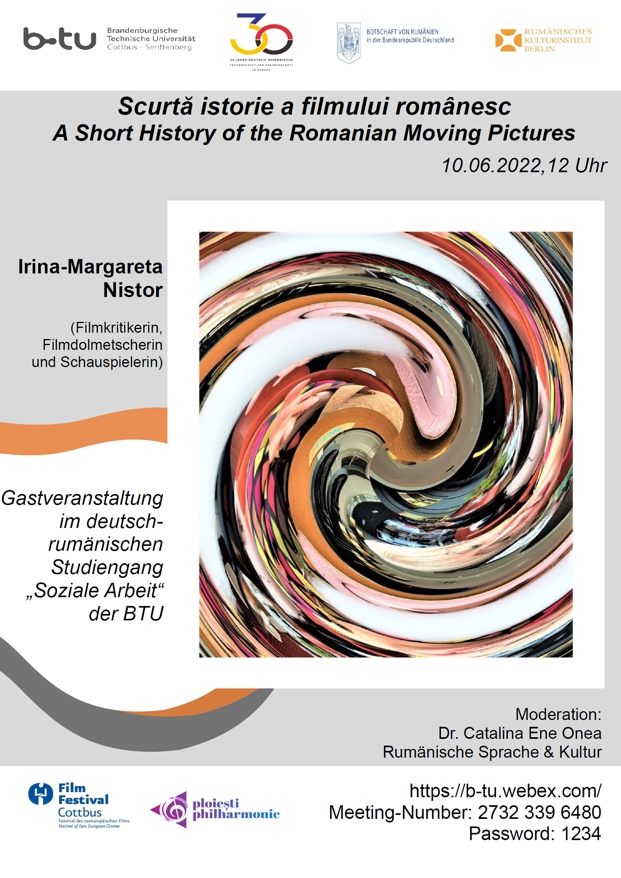Interview with BTU alumnus Manuel Roche (Social Work | German-Romanian)
I would recommend the study programme to people who are open to learning new things and are willing to leave their comfort zone.
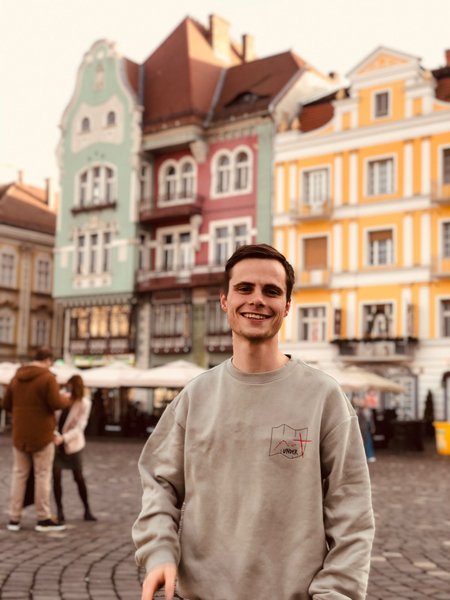
Manuel Roche studied the German-Romanian double degree programme in Social Work at BTU and has been working in Romania since 2021. He recently presented his experiences on Romanian radio. You can find the interview online on soundcloud from minute 24. We also spoke to him about it again.
Hello Mr. Roche, how come you studied the German-Romanian study programme in Cottbus?
After graduating from high school in 2018, I completed an International Youth Volunteer Service (IFJD) in Romania. I worked in a social canteen in Botoșani. On site, I gained an insight into how people on the margins of society live, but above all how Social Work can help people in a sustainable way. That's why I wanted to study Social Work. When I discovered the double degree course in Cottbus, I knew I had to do it. It was just great that I could continue and professionalize my experience from the IFJD, which kept me busy there, by studying at BTU.
What was your study experience like in Germany and Romania?
I started my studies in winter semester 2019. So the first semester was a normal course of study. But the second semester was shaped by the coronavirus measures. The course was online and therefore different. I personally got on with it, although I would have preferred to be physically at the university. Then came the study abroad phase in Romania in the third and fourth semesters. Although this was also very much determined by contact restrictions, I still see this time as very enriching. In my opinion, this is exactly what Social Work is all about: adapting to the circumstances in times of crisis and uncertainty. To use the circumstances in a way that is best for the recipients of Social Work and to change circumstances where possible. So studying during Corona helped me to learn and apply this in practice.
You are now working in Romania, what exactly are you doing there and how did this come about?
During my time abroad as a student, I got to know people in Romania who were setting up work for children and young people. I visited the facility during my studies and joined the project. I was also able to spend my last two semesters in Romania through online lectures and seminars and get involved in the children and youth work there. I am currently working as a social worker in a small day center and am involved in further developing and professionalizing the social services. We are working on the formal and informal education of the local children.
Who would you recommend the study programme to or what should prospective students be prepared for?
I would recommend the study programme to people who are open to learning new things and are willing to leave their comfort zone. The double degree course helps you to think outside the box. This doesn't just happen during the study abroad phase, but also in the time beforehand, when you are being prepared for this adventure. In my opinion, it's worth the experience because you not only gain new impressions for your professional life, but also for your personal life. An experience abroad is formative.
What do you miss most from your periods of study?
What I miss most is discussing the content of my studies with my fellow students; exchanging ideas with them about how to apply a certain theory and what the challenges are, or talking about the social problems of our society in general. In general, I miss being able to learn the course content by exchanging ideas with others.
The German-Romanian Study Program at Radio Romania International
On 14.12.2023 at 18.00 on Radio Romania International as part of the program "România. Dialog direct" a dialog about the German-Romanian study program for Social Work of the Faculty of Human Sciences took place.
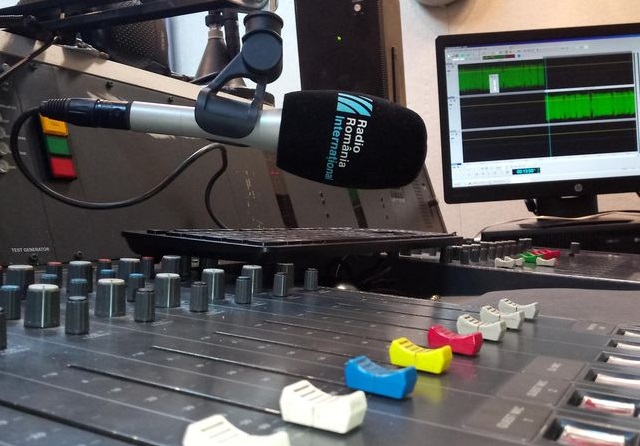
On 14.12.2023 at 18.00 on Radio Romania International, a dialog with Ms. Mihaela Dincă-Băjenaru, the radio producer of the program "România. Dialog direct" about the German-Romanian study program for Social Work at the Brandenburg University of Technology Cottbus-Senftenberg, which is run in cooperation with the West University of Timişoara, Romania. Participants in the discussion were Dr. Cătălina Ene Onea, lecturer in Romanian as a foreign language and Interculturalism at the BTU Cottbus-Senftenberg, Faculty of Human Sciences, Conf. univ. dr Carmen Bărbat, coordinator of the German-Romanian Social Work Program at the West University of Timişoara, Ms. Doinița Grosu, coordinator of the German-Romanian Social Work Program at the BTU Cottbus-Senftenberg, Mr. Vlad Mateescu, conductor and director of the Philharmonie Ploiești, partner institution of the aforementioned double degree program, and Manuel Roche, German graduate of the Cottbus Faculty of Social Work, who has been working as a social worker in Romania since 2021.
The title of the program "Social Work - an academic and practical activity, beyond geographical, cultural and linguistic borders: the bilingual (Romanian-German) Social Work program of the Brandenburg University of Technology in Cottbus, Germany, carried out in cooperation with the Western University of Timisoara" summarizes the content of the program very well and emphasizes the transnational and intercultural dimension of the profession of Social Work in the spirit of our double degree program.
Where?
Radio Romania International
Listen to the radio program
Where?
Radio Romania International
Listen to the radio program
Contact
Doinita Grosu
Institute of Social Work
doinita.grosu(at)b-tu.de
Contact
Doinita Grosu
Institute of Social Work
doinita.grosu(at)b-tu.de
Evening abroad
On 14.12.2023, the evening abroad took place, which was organized by the Social Work students of the double degree courses from the 5th semester for the first semester students.
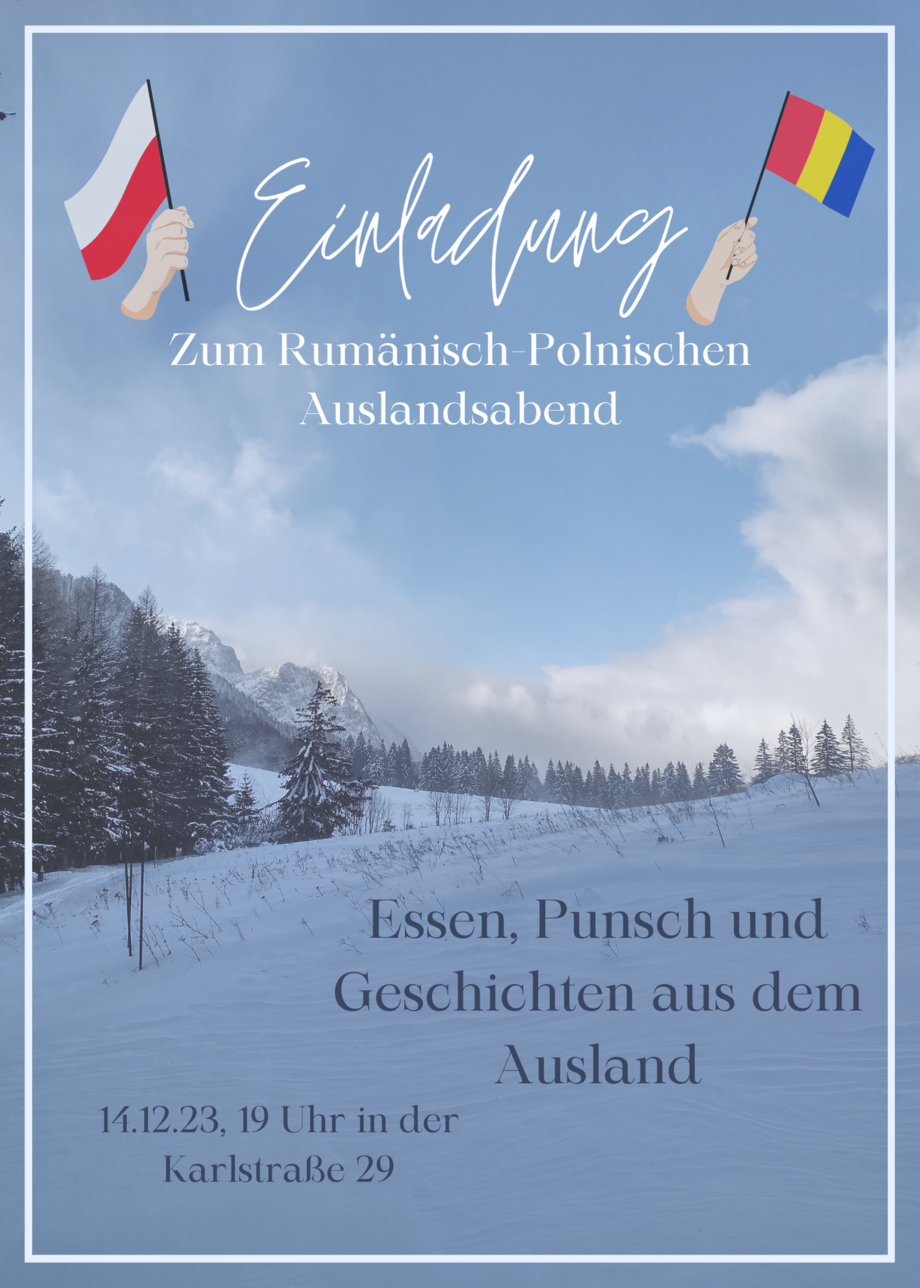
In addition to the current students, the event was also attended by the former dean Ulrich Paetzold, the teacher of the Romanian language course Catalina Onea, Doinița Grosu as the person responsible for the German-Romanian study programme and former students. We, students of the 5th semester of the German-Romanian double degree program, cooked something for dinner. We had Romanian vegetable soup (ciorba de legume), homemade vinete (a spread made from eggplant, garlic and vegan homemade mayonnaise), baguette and, for dessert, ice cream with raspberries, cozonac (a traditional Romanian holiday pastry) and Romanian chocolate. After the meal, we presented our year in Romania to the first-year students who are also on the double degree course or interested in spending a semester abroad. We prepared pictures and showed them, talking about our internship semester, our time at the West University of Timișoara and our vacations in Romania. Funny experiences and instructive stories from this time were told and afterwards we ended the evening with a cozy get-together.
(Laura Weiser, student of the German-Romanian study program for Social Work)
Where?
Cottbus_Karlstr. 29
When?
14.12.2023 I 19:00 h
Contact
Doinita Grosu
Institute of Social Work
doinita.grosu(at)b-tu.de
Excursion to Romania
06.12.-10.12.2023
An excursion to Romania took place from December 6 to 10, 2023 as part of the "Social Work in Romania" seminar in the winter semester. The trip took place in Timişoara and Bucharest.
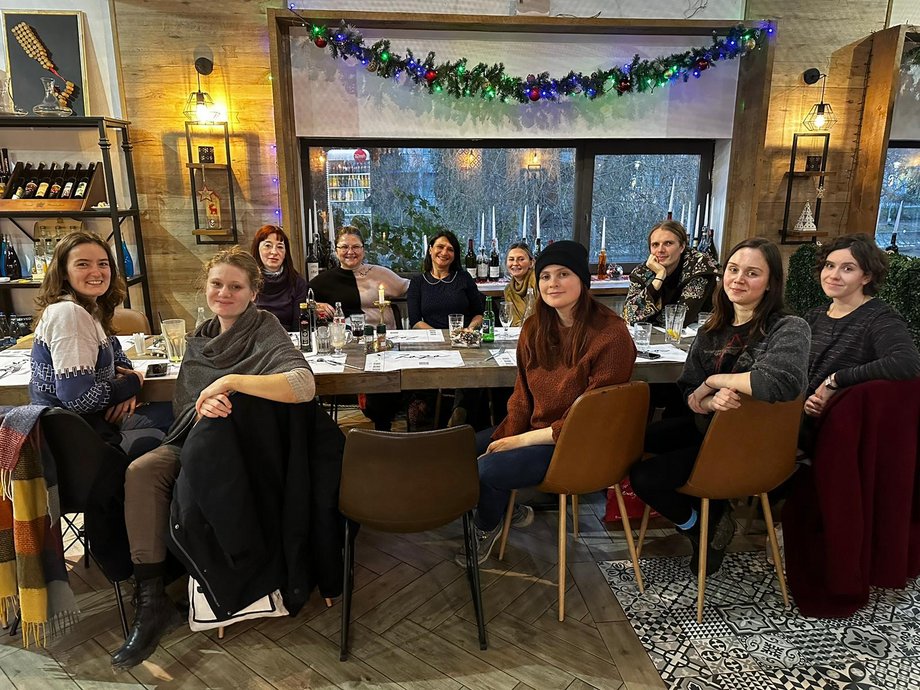
An excursion to Romania took place from December 6 to 10, 2023 as part of the "Social Work in Romania" seminar in the winter semester. The trip took place in Timişoara and Bucharest. The students spent a night traveling by night train from western Romania to the country's capital, which lies to the southeast.
The aim of the excursion was to give the students an insight into Romania's social welfare system. To this end, both non-governmental organizations and state institutions were visited and discussions were held with their employees and clients. As the excursion also served as practical preparation for students wishing to complete an internship in Romania, preference was given to internships that were in line with the students' interests.
In Timișoara, we visited several organizations that gave the field trip participants the opportunity to learn about working with people with disabilities and senior citizens. These were "Casa Faenza", "Pentru Voi" and "The day center for social integration/reintegration for people in difficult situations Dr. Aurora Heim", which belongs to the Directorate of Social Work. At "LOGS-Grup de Initiative Sociale" we were able to learn a lot about working with refugees in Romania.
In Bucharest, we were offered a queer city tour by our colleagues from MozaiQ, an organization that supports the LGBT+ community. After the two-hour educational walk through Bucharest, during which we learned a lot about the history of LGBTQ+ people during and after communism, the organization's social worker talked to the students about the organization's social work activities.
During the appointments at the Directorate of Social Work in Timișoara and the meeting with representatives of the German Embassy in Romania, new dimensions of Romania's social problems and possible local and transnational solution strategies were explained.
The meeting with the first-year students at the West University of Timișoara enabled the students of the German-Romanian study program to get to know their future Romanian fellow students. The head of the Department of Social Work, Prof. univ. dr. Cosmin Goian, welcomed us at the West University. Carmen Bărbat, the head of the German-Romanian study program for Social Work at WU Timișoara, helped organize and accompany the excursion.
Where?
Romania_Timișoara and Bucharest
Contact
Doinita Grosu
Institute of Social Work
doinita.grosu(at)b-tu.de
Interview with BTU alumna Luise Plaasche (Social Work | German-Romanian)
"The course taught me an attitude, especially when dealing with non-German-speaking clients, I was sensitized to issues surrounding migration and discrimination and much more."
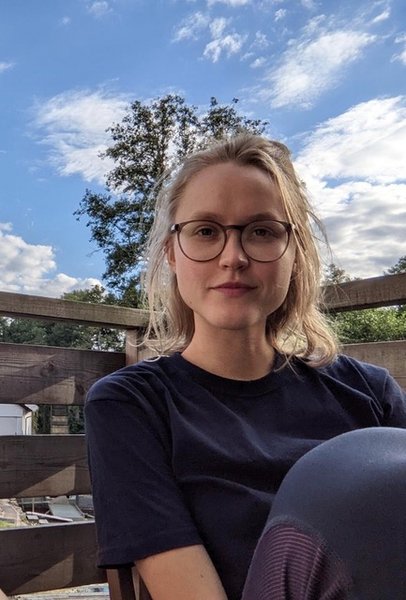
Luise Plaasche spent a social year in Romania after graduating from high school and got to know the language and culture. She then went on to study the German-Romanian Social Work study programme in Cottbus, with stays and a double degree in both countries.
How did you come across the study programme in Cottbus and why did you want to study across national borders?
I did an international voluntary service in Bucharest/Romania. At the preparatory meeting before the start of my stay abroad, we met in a seminar house of my sending organization, where flyers of the study programme were available. I took one of them because I was already interested in studying Social Work at the time. When I was in Romania and wanted to apply for study programmes in Germany, I found the flyer again. The course combined two of my great interests, Romania and Social Work. I saw it as an opportunity to go back to Romania soon, to improve my language skills and to learn more about the country.
What were the biggest challenges during your studies and how did you overcome them?
The first time in Timisoara, where I did my internship, was very challenging for me. Almost alone (a fellow student of mine was in the same city) in a foreign city where a language was spoken that I already knew quite well, but of course did not yet speak fluently. I shared an apartment with a Romanian man who had a completely different idea than me of what it meant to live in a shared flat and was also at a completely different point in his life. This led to conflicts that we had in Romanian. The semester at the Romanian university was due to start at the beginning of the corona pandemic. After two weeks of face-to-face teaching, we switched to online teaching. Six to eight hours of online courses in Romanian were very challenging, although also very educational!
What did you enjoy most about your studies?
That we German-Romanian students were a group that spent a lot of time together, exchanged ideas and tackled challenges together. Ms. Grosu, the course director, did a lot to ensure that we networked with each other beyond our year group (and national borders). I also enjoyed improving my Romanian and dealing more intensively with the topic of migration.
How have you changed during your studies, especially your intercultural skills?
I have improved my Romanian language enormously. I have a better understanding of the lives of people living transnationally. The fact that my stay in Romania gave me an insight into professional life, the social system and the geography of the country also helps me a lot in my work today. My studies taught me an attitude, especially when dealing with non-German-speaking clients, and I was sensitized to issues surrounding migration and discrimination, and much more.
What do you miss most from your periods of study?
I miss traveling across countries (regardless of vacations) and being in constant contact with new people from different countries.
Romanian evening in Cottbus
19.07.2023 | 18:00 h
Language - Literature - Music
Guest event in the German-Romanian study programme "Social Work"
with:
Piano player Ioana-Maria Lupaşcu
"Paul Constantinescu" Philharmonic, Ploieşti
Actress Daniela Nane
"Ambasadorii" Music Theatre, Bucharest
and
Author Carmen-Francesca Banciu, Berlin
Welcoming remarks: Prof. Dr. Gregor Fuhrmann
Head of the Instrumental and Vocal Performance and Teaching study programme
Moderation: Dr. Catalina Ene Onea
Lecturer in Romanian Language & Culture/ Interculturalism
The event is being held in collaboration with the "Paul Constantinescu" Philharmonic Orchestra from Ploiești, Romania, and marks the second joint event organized by the integrated German-Romanian Social Work double degree programme (B.A.) at BTU and the Romanian Philharmonic Orchestra. On June 10, 2022, artists from the Philharmonic opened the online guest lecture Scurtă istorie a filmului românesc/ A Short History of the Romanian Moving Pictures by Romanian film critic Irina-Margareta Nistor, which took place with the kind support of the Embassy of Romania in the Federal Republic of Germany and the Romanian Cultural Institute Berlin, in cooperation with the Cottbus Film Festival, under the motto "30 Years of German-Romanian Partnership and Friendship in Europe": https://www.b-tu.de/news/artikel/21293-default-d22b93e0db
The "Paul Constantinescu" Philharmonic Orchestra from Ploiești (founded in 1952) is one of the most important cultural institutions in Romania, which was recognized as a cultural institution of national interest in January 2019. The Philharmonic includes the symphonic orchestra, the folk music orchestra "Flacăra Prahovei", Ploieşti Jazz Trio, Ploiești Big Band Jazz Society, the string quartet "Chronos" and the mixed choir. Since 2020, the Philharmonie has also had an online concert hall called the Virtual Concert Hall. All of the orchestra's concerts and guest events are broadcast here and then shown as repeats: https: //filarmonicaploiesti.ro/
Free admission
Excursion to Romania
23.11. - 27.11.2022
In the period 23.11.-27.11.2022 a group of 9 students from the German-Romanian and the regular social work program participated in an excursion to Timisoara and Bucharest in Romania.
This excursion is already a tradition in the German-Romanian social work study program. Every November, students from this study program travel to Romania to get an idea of the country, the partner university (where they will later study for a year) and possible future places of work (for their internship abroad).
The aim of the excursion is also to introduce our integrated study program to the students from Romania and to invite them to study in Cottbus.
In this sense, we introduced ourselves to the West University Timişoara and got in touch with students from the Faculty of Social Work from the West University Timişoara. We visited four places of social work sites in Timişoara and Bucharest: Casa Faenza, which supports children with autism, Pentru Voi, an organization for people with disabilities, LOGS Timișoara, which assists refugees, and ADPARE in Bucharest, which works in the field of human trafficking. The Directorate of Social Work Timișoara presented to us, as every year, state social programs and institutions and allowed us to take a look at the structure and funding mechanisms of social services in Romania. At the end, in Bucharest, we had the pleasure of being invited to a brunch by representatives of the German Embassy in Bucharest. In a convivial atmosphere we presented our study program to them and developed some ideas for further cooperation.
Where:
Romania: Timisoara and Bucharest
Contact
Doinita Grosu
Institute of Social Work
T +49 (0) 355 5818- 404
doinita.grosu(at)b-tu.de
Augmented Reality in Social Work
05.12.2022 | 13:00 - 18:00 h
Together with students from two Romanian partner universities, students from the BTU's integrated German-Romanian double degree program in social work are focusing on the topic of augmented reality (AR) in a seminar and dealing with digitalization.
The Romanian participants come from the West University of Timișoara and the Babeș-Bolyai University of Cluj-Napoca.
The AR seminar is part of the three-day workshop "The Concept of Place in the Social Work" with students studying social work at the three universities. In addition, the students will have the opportunity to discover the city of Cottbus and the two campuses of the BTU located here during a guided tour of the city by the International Relations Office. They visit social organizations in Cottbus and the local museum in Dissen. An international evening event hosted by the Faculty of Social Work, Health and Music will provide a relaxed atmosphere for the guests to exchange ideas with BTU students and professors.
Background The international workshop is possible thanks to the DAAD funding program HAW.International-Module B, which will serve to strengthen international relations with practice partners and universities from Romania and Poland from 2019 to 2023.
To the German-Romanian double degree program in social work
Event Location
Room 10.212 Building 10
Campus Cottbus-Sachsendorf
Lipezker Straße 47
03048 Cottbus
Contact
Prof. Dr. Juliane Noack Napoles
Educational Sciences for Social Work
T +49 (0) 355 5818- 414
noacknap(at)b-tu.de
Doinita Grosu
Institute for Social Work
T +49 (0) 355 5818- 404
doinita.grosu(at)b-tu.de
Romanian in Cottbus!
10.11.2022 15:30 - 17:00
The German-Romanian double degree program at BTU Cottbus-Senftenberg introduces itself.
Discover the study program and study opportunities in Romanian at the Faculty of Social Work, Health and Music of the Brandenburg University of Technology (BTU) Cottbus-Senftenberg and at the partner universities in Romania:
Romanian language courses, excursions with a thematic focus, cultural events with guests from Romania (literature, film, music, history, regional studies), German-Romanian tandem program in cooperation with the Goethe-Institut Bucharest, cooperation with the Romanian Journalists Association, and much more.
During the event, the newly published book "33 "by Catalina Ene Onea (Essays and Cultural Correspondence Germany-Romania, Eikon Verlag, Bucharest 2022) will be presented (including a short reading).
The event offers the perfect opportunity to engage in conversation with the team of the German-Romanian study program as well as with Romanian students at the BTU.
Guest: the Romanian-German author Carmen-Francesca Banciu (tbc)
Where:
Central campus of the BTU
Information, Communication and Media Center (IKMZ) - Foyer, 7th floor
Platz der Deutschen Einheit 2
03044 Cottbus
Online via Webex
Contact
Dr. Catalina Ene Onea
Lecturer in Romanian Language and Culture/Interculturality,
initiator and coordinator of cultural events and
the German-Romanian Tandem Program at the BTU,
author and cultural journalist
onea(at)b-tu.de
Doinita Grosu
Institute for Social Work
T +49 (0) 355 5818-404
doinita.grosu(at)b-tu.de
Film critic, film interpreter and actress Irina-Margareta Nistor with lecture at BTU
10.06.2022 12:00 - 2:00 PM
The online event takes place with the kind support of the Embassy of Romania in the Federal Republic of Germany and is held under the motto "30 years of German-Romanian partnership and friendship in Europe".
The integrated German-Romanian degree program "Social Work" with double degree at the Brandenburg University of Technology Cottbus-Senftenberg invites you to the video conference Scurtă istorie a filmului românesc/ A Short History of the Romanian Moving Pictures by the Romanian film critic, film interpreter and actress Irina-Margareta Nistor on 10 June 2022 at 12 noon.
On the occasion of Ms. Irina-Margareta Nistor's lecture, the Cottbus Film Festival 2022 will also introduce itself, presenting the section "Spotlight Romania" between 8-13 November with the support of the Romanian Cultural Institute Berlin. The "Paul Constantinescu" Philharmonic Orchestra from Ploiești in Romania will provide a musical prelude.
Greetings:
- Her Excellency Ms. Adriana Stănescu, Ambassador of Romania to the Federal Republic of Germany.
- Mr Cristian Niculescu, Director of the Romanian Cultural Institute in Berlin
- Mr. Joshua Jadi, Deputy Programme Director of the Cottbus Film Festival 2022 /"Spotlight Romania".
Musical prelude:
Concert pianist Ioana-Maria Lupascu and vocal soloist Violeta Barac, "Paul Constantinescu" Philharmonic Orchestra, Ploiești.
Welcoming messages from the organisers and moderation:
Dr. Catalina Ene Onea, Lecturer in Romanian Language & Culture/ Interculturality at BTU Cottbus-Senftenberg.
Online Event
Meeting-Number: 2732 339 6480
Password: 1234 Webex
Contact
Dr. Catalina Ene Onea
Lecturer in Romanian Language and Culture/Interculturality,
initiator and coordinator of cultural events and
the German-Romanian Tandem Programme at the BTU,
author and cultural journalist
onea(at)b-tu.de
Doinita Grosu
Institute for Social Work
T +49 (0) 355 5818- 404
doinita.grosu(at)b-tu.de

